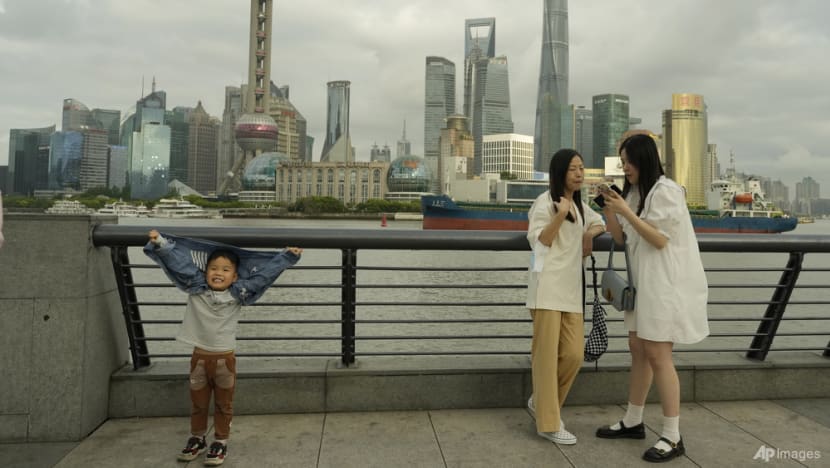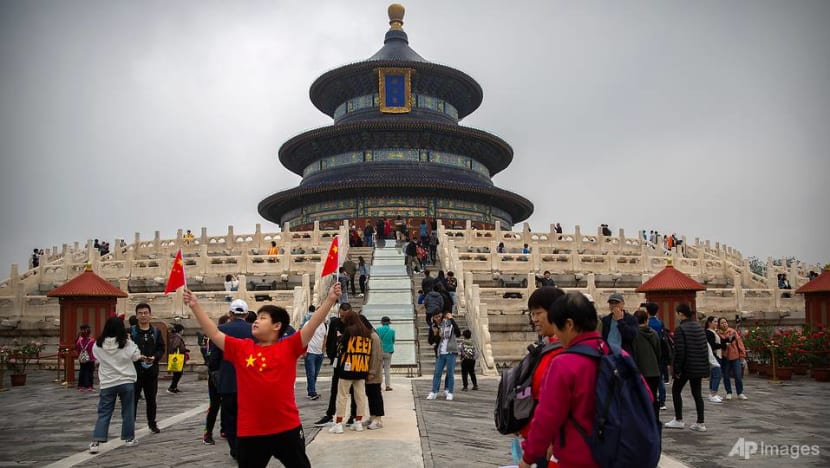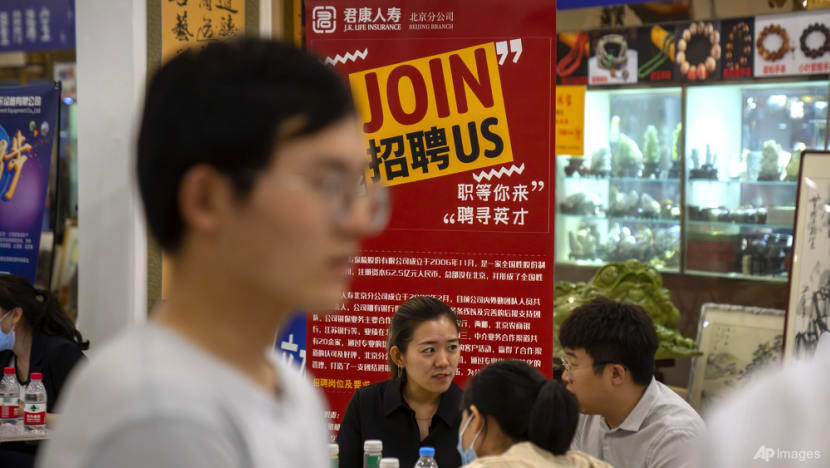Despite tourism boost from border reopening, China’s economic growth remains sluggish, with high unemployment
The move to fully ease one of the world’s tightest COVID-19 regimes in January this year had injected an early dose of optimism into the global economy.

SHENZHEN: After reopening its borders almost six months ago, China’s economic recovery appears to be unevenly spread across the country, according to the latest data.
The move to fully ease one of the world’s tightest COVID-19 regimes in January this year had injected an early dose of optimism into the global economy.
China’s COVID-19 policy, which included frequent testing, curbs on movement and mass lockdowns, had heavily damaged the world’s second-biggest economy.
TOURISM BOOST
Shanghai Disneyland was forced to close three times during the pandemic, including a snap COVID-19 lockdown imposed last year which saw thousands of visitors trapped inside the park.
But since China's reopening, business has been so brisk that Disney announced a near 10 per cent hike in the price of entry tickets.
"We are young. I feel that if money is spent, it can be earned again. But at Disneyland, happiness is worth even more,” said one visitor.
Visitors told CNA that they queued as long as over an hour at the park entrance just to get in, due to the sheer number of people.
Visitor numbers and revenue at the Shanghai International Tourism Resort, where Disneyland is located, hit record highs in the first quarter of this year.
They were up 81 and 82 per cent compared to the same period last year and in 2019 – before COVID-19 hit – respectively.
Across China, tourism numbers have also rebounded strongly, growing 32 per cent year on year during the recent Dragon Boat Festival.
"There is a psychological rebound. After the reopening this year, everyone is going out to play either abroad or domestically,” said one resident.
DROP IN REVENUE
Despite the strong rebound in domestic tourism since the reopening, the prospects for the wider Chinese economy and employment appear less certain.
While the number of tourism trips has increased, revenue has dropped 5 per cent compared to 2019, indicating that although people are willing to travel, they are spending less.

What's weighing on China's economy? Listen to the CNA Correspondent:
Scores of migrant workers at a long distance transport station in Shenzhen sleep rough on the streets, after exhausting their resources while waiting to find jobs in the tech hub.
Policemen regularly chase them away at dawn, but they would return at night.
“The job market is no good now. Many people can’t find jobs. During the pandemic, it was a little better,” said one jobseeker, who has been waiting for over two months.
“At that time, there were still positions for (anti-pandemic) security guards and so on. Now, there are no such jobs available.”
HIGH UNEMPLOYMENT
With the job market now in favour of employers, hourly wages for some labourers have fallen from around US$3.50 to around US$2.50 per hour.
Mr Yang Qing, chairperson of the Yun Jiu Hong Human Resources Group, told CNA: "Salaries have been going down. Why? When the demand for manpower from companies is not high, it is impossible that they would attract potential employees with a high salary."
As of May this year, a record one in five youths in China’s big cities are unemployed.

The soft labour market is partly a result of a sluggish manufacturing sector, where recovery has been below expectations.
Global inflation has quelled overseas demand for Chinese goods, and domestic spending has failed to make up the shortfall.
At the world’s largest wholesale electronics market in Shenzhen, the crowds are missing even on weekends.
Business owners said sales have been even worse than last year, when manufacturing was often disrupted by lockdowns. Some say about half of their competitors have closed shop.
Shenzhen Panfengxiu Technology director Angela Yang told CNA: "Although China has opened up, compared to last year, the situation has not improved much. Although foreigners can enter China now, the quantity of orders placed this year is in fact not comparable to last year’s."
She estimates orders have dropped by half, a development she described as “troubling”.
With added geopolitical uncertainties stemming from Sino-US tensions, some manufacturers have also decided to diversify their risks by relocating overseas, taking with them jobs in China.
At a World Economic Forum event in Tianjin last month, Chinese Premier Li Qiang reassured investors and foreign businesses that China's recovery is fast gaining momentum, despite weak economic data.
"From what we see this year, China's economy shows a clear momentum of rebound and improvement. We are on track to hit the growth target of around 5 per cent we set for the whole year,” he said.
With a record high of over 11 million graduates set to enter the job market this year, China's economic recovery will take on an added urgency if it wants to stave off domestic discontent.















